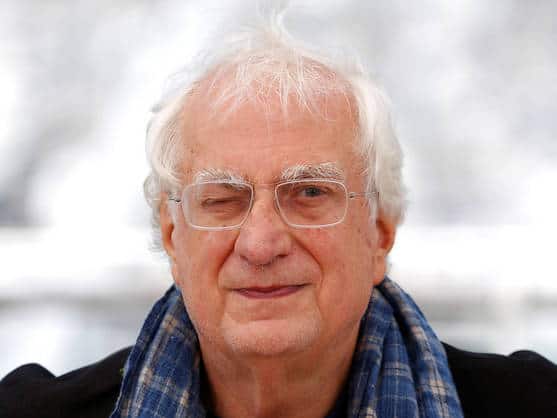The director of ‘La muerte en directo’, ’round midnight’ and ‘Today it all begins’ filmed a cinema on a human scale and always attached to social reality
The French director Bertrand Tavernier, master of a human-scale cinema who always remained attached to social reality, has died this Thursday at the age of 79, as announced by the Lumière Institute, the museum-film library dedicated to the brothers who invented the cinematograph, who presided in Lyon, his hometown, since 1982. Tavernier signed films committed to just causes, but also in favor of poetic license. He was a great defender of the legacy of Dumas, Zola, and Victor Hugo, an unconditional admirer of American jazz and good food, and a militant who fought for the cultural exception, for the cause of the undocumented and the depressed banlieues., and against an extremist temptation that, decades after arriving in the world in the midst of world war, saw it return, with immense regret, throughout the European continent.
Tavernier was one of the great figures, along with André Téchiné or Jacques Doillon, of the generation of filmmakers that emerged just after the Nouvelle Vague. He was not characterized by the same disruption as his elders, except in his desire to avoid a certain tendency to solipsism and to reinstate the traditional story and the realistic register as valid and stimulating cinematographic forms. The director assumed as his own a famous quote by Samuel Fuller, the one that says that films must arise from anger, from those outbreaks of anger in which this man with a heavy silhouette looked like a specialist, as anyone who came across him knows in his long career. Often, his work was hung with the well-liked social film label, which Tavernier was not entirely convinced by. “I have never worked from social problems, but from characters. A social situation can never be the subject of a movie, ”he once assured.
In France, after the glorious period he lived in the eighties and nineties, with titles such as La muerte en directo (1980), A Sunday en el campo (1984), Around midnight (1986), La vida y nada más (1990) ), Law 627 (1992), La hija de d’Artagnan (1994), La carnaza (1995), Captain Conan (1996) and Today it all begins (1999), Tavernier was somewhat cornered, little connected with the trends in vogue, more respected than celebrated. Perhaps more loved outside his country than within its borders, as he admitted with a half-smile. “I cannot deny that the first great reward I receive comes from abroad, but I would not say that France has treated me badly. For example, I have won four Caesars. I know filmmakers who are appreciated even less ”, he joked at the 2015 Venice Film Festival, where he received an honorary award, the first and last of a great festival. “What counts is that I have always shot the films that I wanted to make and that I have done it with total freedom. I am very proud of some of them. When I told myself at the age of 13 that I wanted to be a film director, I never imagined that I would have such an extraordinary life, “he added then.
Tavernier was born in 1941 in Lyon, a city of bourgeois and Catholic culture that deeply penetrated his filmography, full of gloomy apartments and river courses such as those of the Rhone and the Saone, alongside which he grew up. His father was the poet René Tavernier, a figure in the Resistance against the Nazis and a supporter of De Gaulle, who never accepted his vocation for the cinema and with whom he fell out in his early twenties, when the rebellious son refused to study law, as was expected of him. This is where one of the main threads of his work would emerge, so marked by father-child ruptures, followed by an optional reconciliation. After studying at the Sorbonne and founding the Nickelodéon film club, with which he dedicated himself to rehabilitating American cinema in the forties and fifties, somewhat disgraced, his career as a director began when the actor Philippe Noiret, who had just shot with great filmmakers such as Louis Malle, Marco Ferreri or even Alfred Hitchcock, agreed to star, against the refusal of his agent, Tavernier’s first screenplay, Saint Paul’s Watchmaker (1974), an adaptation by Georges Simenon that he had signed at age 29.

